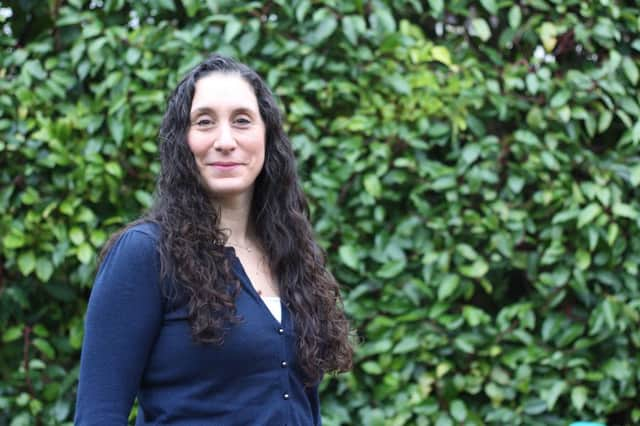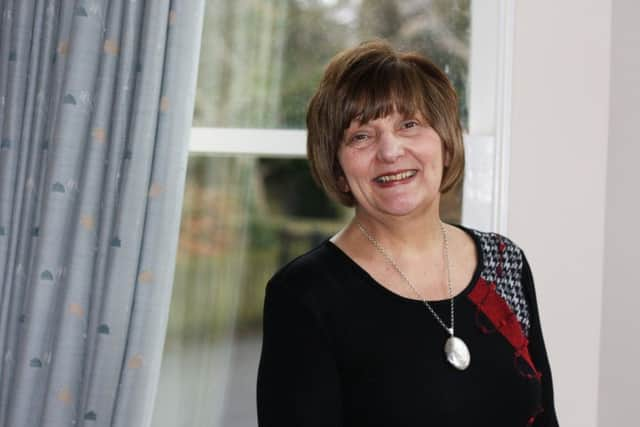Why I was relieved to be told I had a high risk of breast cancer


Most people told they are carriers of a faulty gene which causes the chances of developing cancer to rocket ask the question, ‘why me?’ Not Rochelle Gold.
“I don’t know if I’m different to other people, but it was a relief for me,” says the 38 year old from Leeds, who tested positive for the BRCA2 mutation, which is linked to breast cancer, in the summer of 2015. “It meant I had the opportunity to do something to about it.
Advertisement
Hide AdAdvertisement
Hide Ad“I always said that if I had the fault I would have preventative surgery. I’m quite risk averse, and I just wanted to get rid of any body part that could develop the disease.”


Rochelle’s fears were well founded. Her mother Phyllis had been diagnosed with breast cancer two years earlier and her grandmother had also suffered with the disease. While historically, doctors assumed that developing both breast and ovarian cancer was a lottery, the discovery 20 years of faults in two key genes has revolutionised diagnosis and treatment.
And for women of Ashkenazi Jewish heritage like Rochelle that research has the potential to save even more their lives. While around one in 800 people have a fault in the BRCA1 or the BRCA2 gene, linked to ovarian cancer, one in 40 Ashkenazi Jews have the mutation.
“Mum was tested for the mutations in 2013 and when she found she had faults in both genes that’s when I decided to be tested too,” says Rochelle. “Shortly after I received my results, mum became very unwell.
Advertisement
Hide AdAdvertisement
Hide Ad“It turned out that she had secondary tumours, mainly in her liver. They told her that it would kill her. Two weeks later she died. The cancer was extremely aggressive and although they did try to give her chemotherapy, there was nothing they could do.


“I’d already decided that I would have surgery and mum dying cemented that. I know that there are amazing ways they can treat cancer these days, but there was never any question of what I was going to do.”
In April last year, Rochelle underwent a double mastectomy and while she is being monitored regularly for signs of ovarian cancer, she has already arranged to have a full hysterectomy.
It is, she says, a question of statistics. Before the first operation, Rochelle’s lifetime risk of developing breast cancer was around 85 per cent. After her hysterectomy it will reduce to five per cent - lower than the general population’s risk which is estimated to be 12 per cent.
Advertisement
Hide AdAdvertisement
Hide Ad“The thing about the operation I had is that you are never without your breasts,” she says. “You have them reconstructed at the same time, so I woke up relieved and elated. Mum’s breasts had killed her, but mine were gone. It was over and I was ok.”
“I’ve had my children and I’ve breast fed them. I don’t think my breasts and uterus are what makes me a woman. They’s just parts of my body that have served their purpose and I don’t need them anymore.” Rochelle, whose mother was a tireless fundraiser for Yorkshire Cancer Research, is now eager to spread the word about the risk of gene faults within the Jewish community in Leeds and estimates that there around 250 people in the city who might have the mutations.
“There has to be something good that comes from what we’ve been through,” she says. “I’m very driven by a feeling that if we had known about the BRCA mutation earlier mum could still be here.”
Hilary Tammer is joining Rochelle on her awareness raising campaign. A friend of Phyllis’ and a fellow Ashkenazi Jew she was treated for ovarian cancer in 2001 and then three years ago, after suffering from a sharp pain in her back, was diagnosed with a tumour on her kidney.
Advertisement
Hide AdAdvertisement
Hide AdIt was after undergoing pioneering treatment at St James’s University Hospital, which uses extreme cold to kill cancer cells, that Hilary decided that she wanted to be tested for the BRCA genes.
“I worried for my children,” she says. “I have a daughter and a son and my daughter has three daughters of her own. When I was diagnosed with ovarian cancer, I asked whether I should have the test, but was told it wasn’t necessary as no one in my family had been diagnosed with either breast or ovarian cancer.
“It remained in the back of my mind though. My late parents kept things to themselves. They didn’t even want to mention the word cancer, so it was difficult to know for definite that there wasn’t a family history.
“Thankfully we’ve come a long way since then. There was a meeting about BRCA testing at our Jewish community centre and I asked my daughter if she thought I should have it done. She said I absolutely should.”
Advertisement
Hide AdAdvertisement
Hide AdWhile Hilary felt sure she was a carry of at least one of the faulty genes, she in fact tested negative for both.
“I was incredibly nervous opening the letter and I was worried about what would happen next. I was convinced that was the reason for my cancer, so it came as a huge relief. I would definitely encourage others to have the test as there is so much that can be done if the disease is diagnosed early.”
While testing for the BRCA gene is only available to those aged over 18, in the last decade it has become possible for those with the fault to undergo an IVF procedure to ensure their children do not carry the mutation.
“There is a possibility that we could stop this thing altogether,” says Rochelle, who has a four year old daughter and a two year old son. “When you lose someone through cancer, a part of you goes with them. If you can prevent that from happening, it keeps you whole and keeps your family whole. I want to help keep other families whole.
Advertisement
Hide AdAdvertisement
Hide Ad“Mum never wanted a fuss to be made about her. She never wanted to be in the limelight, but so many family and friends have now come forwarded to be tested. From standing outside Marks and Spencer’s with a collecting tine to helping arrange big events, mum dedicated a huge part of her life to raising money for Yorkshire Cancer Research. Now thanks to the BRCA test, he’s now saving lives left, right and centre.”
For more information search for BRCA Journey on Facebook or follow @BRCA_Journey on Twitter.